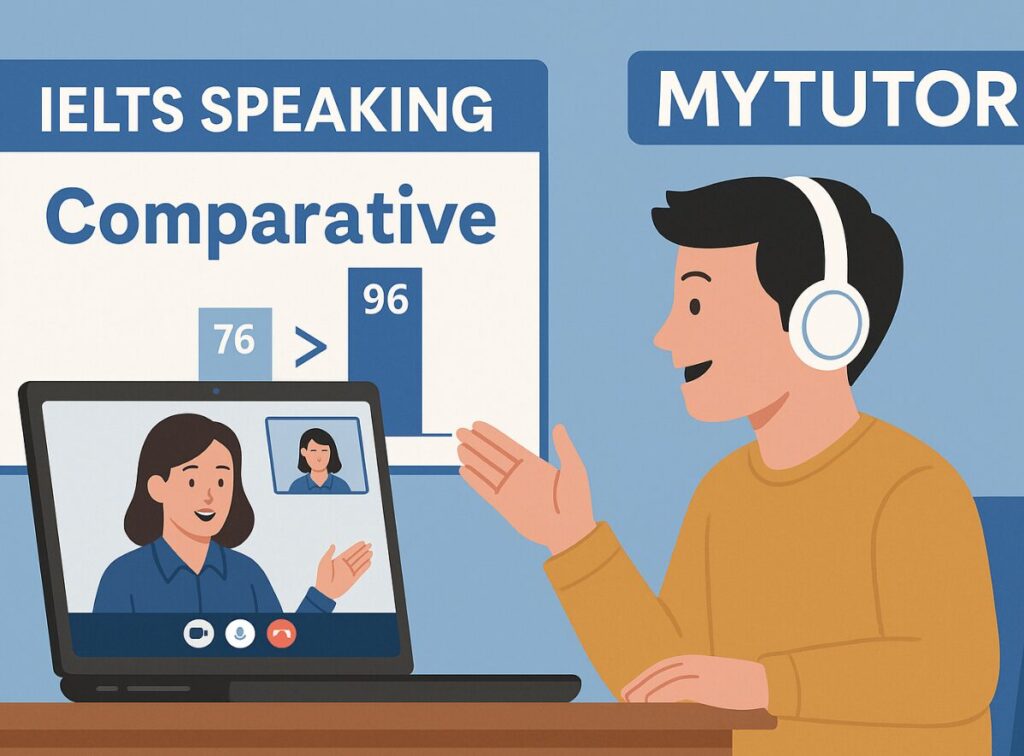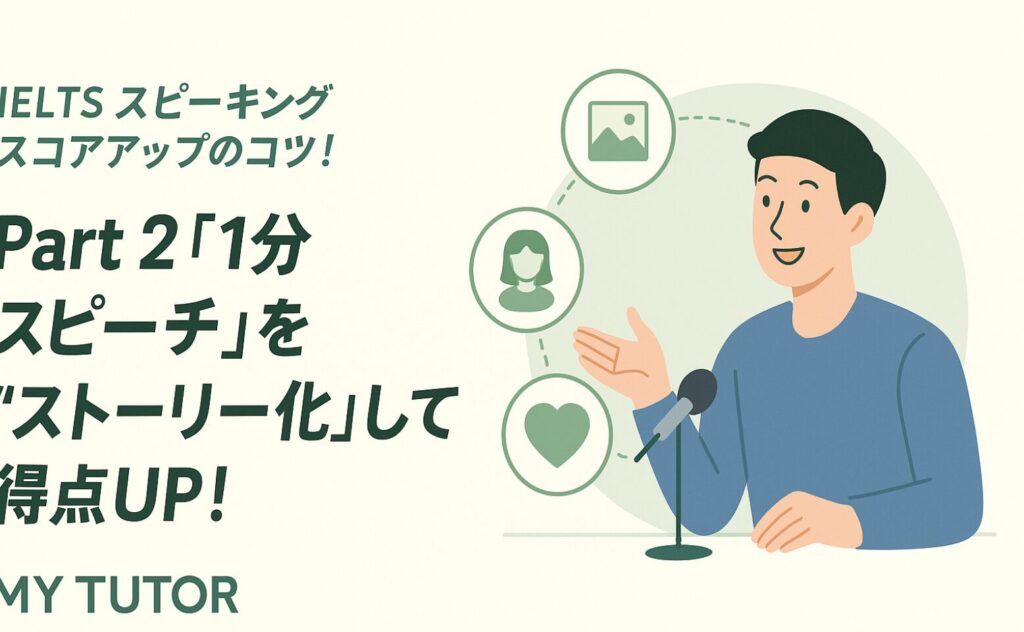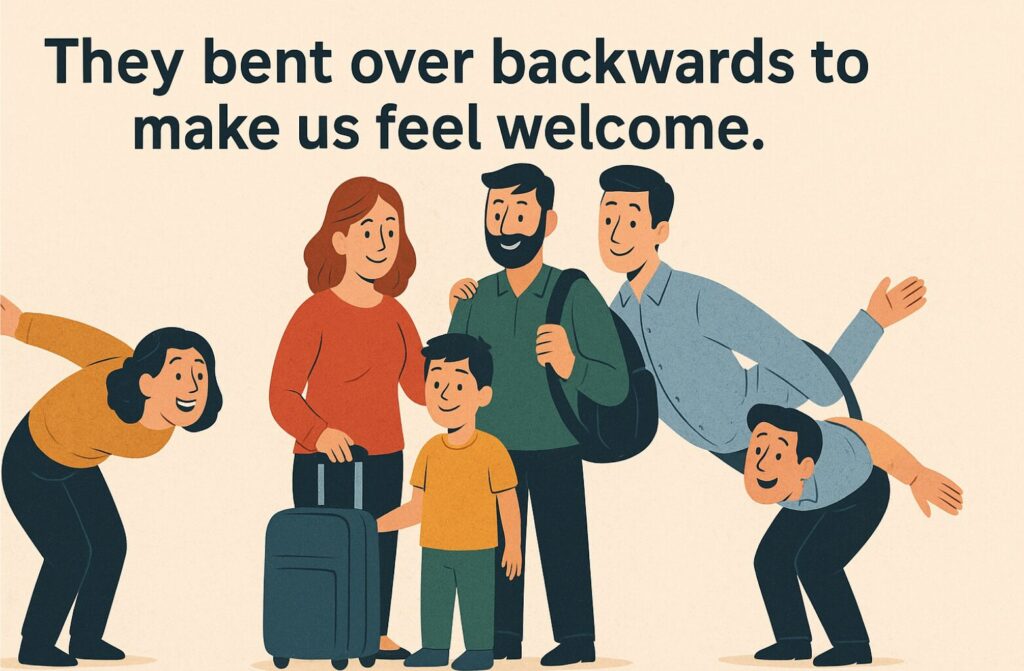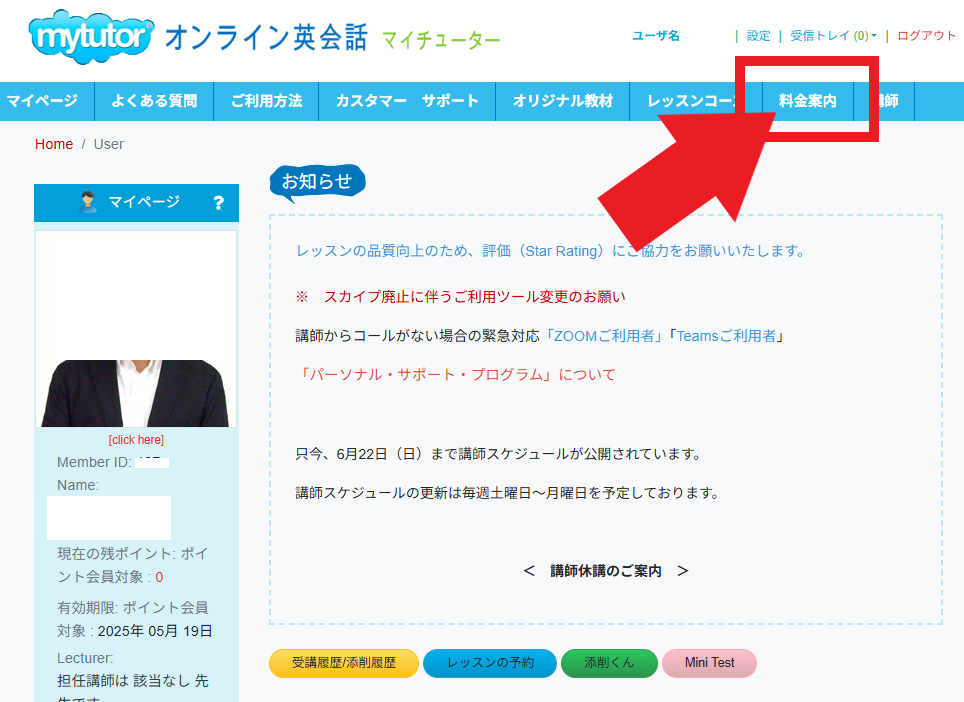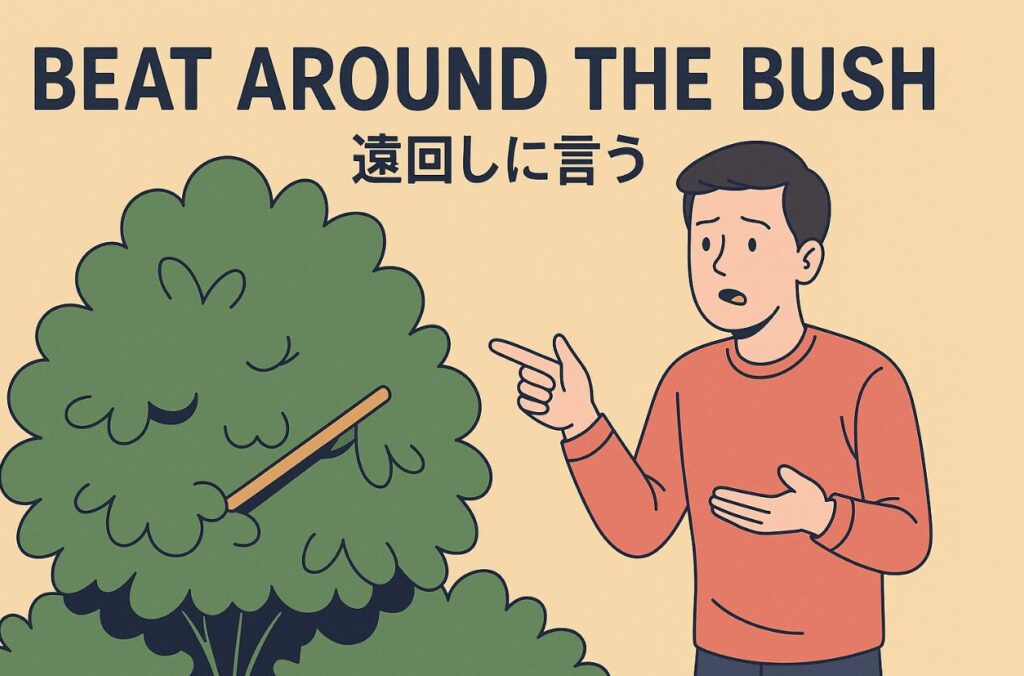
🌿 今回のイディオム
beat around the bush
(読み:ビート・アラウンド・ザ・ブッシュ)
意味:遠回しに言う、核心を避ける
🧐 どんな意味?
このイディオムは、言いたいことをはっきり言わず、回りくどく話すことを表します。
本題に入らず、遠回しに話している様子を皮肉っぽく表現するのにぴったりです。
ネイティブの日常会話やビジネスシーンでもよく耳にします。
🌳 語源について
この表現の語源は中世の狩猟にあります。
狩人の従者が茂み(bush)の周りを叩いて獲物をおびき出す役目をしていたことから、
「核心(獲物)には触れず、その周りをうろつく行為」=「本題に入らない」という意味になりました。
🗣️ 使い方をチェック!
Stop beating around the bush and tell me what you really think.
「遠回しに言わないで、正直にどう思ってるか教えてよ。」
She kept beating around the bush when I asked about her plans.
「彼女は予定について聞いてもはぐらかしてばかりだった。」
If you want a raise, don’t beat around the bush—just ask!
「昇給を望んでるなら、遠回しに言わずにちゃんとお願いしよう!」
🧭 ポイント解説
ネガティブなニュアンスで使われることが多く、「回りくどい」「はっきりしない」印象を与えます。
相手に直接的に話すよう促すときに使える便利な表現です。
過去形(beat)も現在形(beat)も綴りが同じなので、文脈に注意!
🔁 似たような表現
Get to the point(要点を話す)
Speak plainly(率直に話す)
Don’t dance around the issue(問題をうやむやにするな)
相手に本音を言ってほしいときや、話が回りくどくてイライラしたときに便利なフレーズが「beat around the bush」。
この表現をサラッと使えるようになれば、会話のキレもアップします!
はっきり伝えたいときには、ぜひこのイディオムを活用してみてください。


